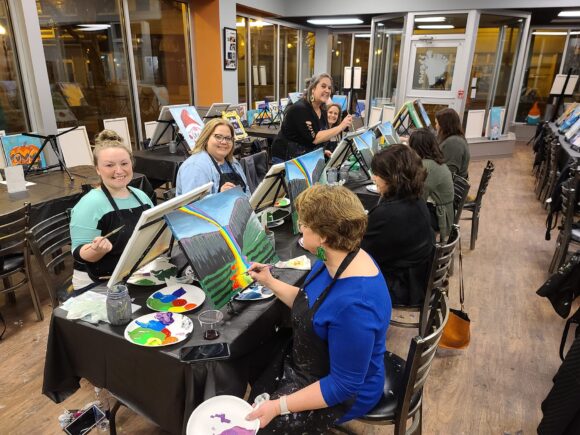Another federal appellate court ruled Monday that a business interruption caused by COVID-19 does not amount to a physical damage or loss covered by a commercial property insurance policy.
A panel of the 4th Circuit Court of Appeals affirmed the dismissal of claims by two West Virginia art studios that operated “creative events” and sought coverage from Cincinnati Insurance Co. for income lost after they were ordered to restrict public access to their properties.
The panel said in its opinion that “under West Virginia law, the policy language requiring a ‘physical loss’ or ‘physical damage’ unambiguously covers only losses caused by, or relating to, material destruction or material harm to the covered property.”
Nine other circuit courts have made similar rulings. Of the 12 regional Circuit Courts, only the 1st and 3rd have not yet ruled on whether business interruptions caused by COVID-19 are covered under commercial property policies, according to a litigation tracker maintained by the University of Pennsylvania. State appellate courts in California, Indiana, Michigan and Ohio have also affirmed dismissal of lawsuits seeking coverage for COVID-19 losses.
Every insurance claim, of course, must be decided according to the laws of the state where the property is located. The owners of Uncork and Create were counting on a different outcome in West Virginia because of a 1998 state Supreme Court ruling that insurers were liable for three homes that became uninhabitable because of an eroding high rock wall on a hill that was losing boulders, which rolled down the hillside and threatened to destroy everything in their path. Although there was no physical damage, the West Virginia court decided that the threat amounted to a physical loss because the homes had become “unusable or uninhabitable.”
Uncork and Create conducts art classes, some while customers sip wine. The company shut down its studio in Barboursville permanently and temporarily closed its studio in Charleston after West Virginia Gov. Jim Justice ordered “non-essential” businesses to temporarily cease operations.
Uncork sought coverage for its lost income, but Cincinnati denied its claim because there was no physical loss or damage to its properties. Uncork file a lawsuit seeking class-action certification to include itself and other businesses that has filed COVID-19 business interruption claims that were denied. A US District Court dismissed the lawsuit.
Uncork argued that its inability to operate its art studios qualifies as a physical loss of the property, just as the danger presented by threatening boulders caused the homes in the Murray case to become uninhabitable.
The 4th Circuit panel, however, found that the situations were not the same. The opinion says the finding in Murray was tied to the impending material destruction of the homes.
“In contrast, in the case before us, neither the closure order nor the virus itself prohibited Uncork from having access to the covered property,” the opinion says. “In fact, under the closure order, businesses with fewer than five individuals working at the premises were permitted to do so.”
The panel affirmed the decision to dismiss Uncork’s claim.
About the photo: A class at Uncork and Create is shown. Photo from the company’s Facebook page.
Was this article valuable?
Here are more articles you may enjoy.


 Judge Upholds $243M Verdict Against Tesla Over Fatal Autopilot Crash
Judge Upholds $243M Verdict Against Tesla Over Fatal Autopilot Crash  Bayer to Make $10.5 Billion Push to Settle Roundup Cases
Bayer to Make $10.5 Billion Push to Settle Roundup Cases  ‘Structural Shift’ Occurring in California Surplus Lines
‘Structural Shift’ Occurring in California Surplus Lines  AIG’s Zaffino: Outcomes From AI Use Went From ‘Aspirational’ to ‘Beyond Expectations’
AIG’s Zaffino: Outcomes From AI Use Went From ‘Aspirational’ to ‘Beyond Expectations’ 